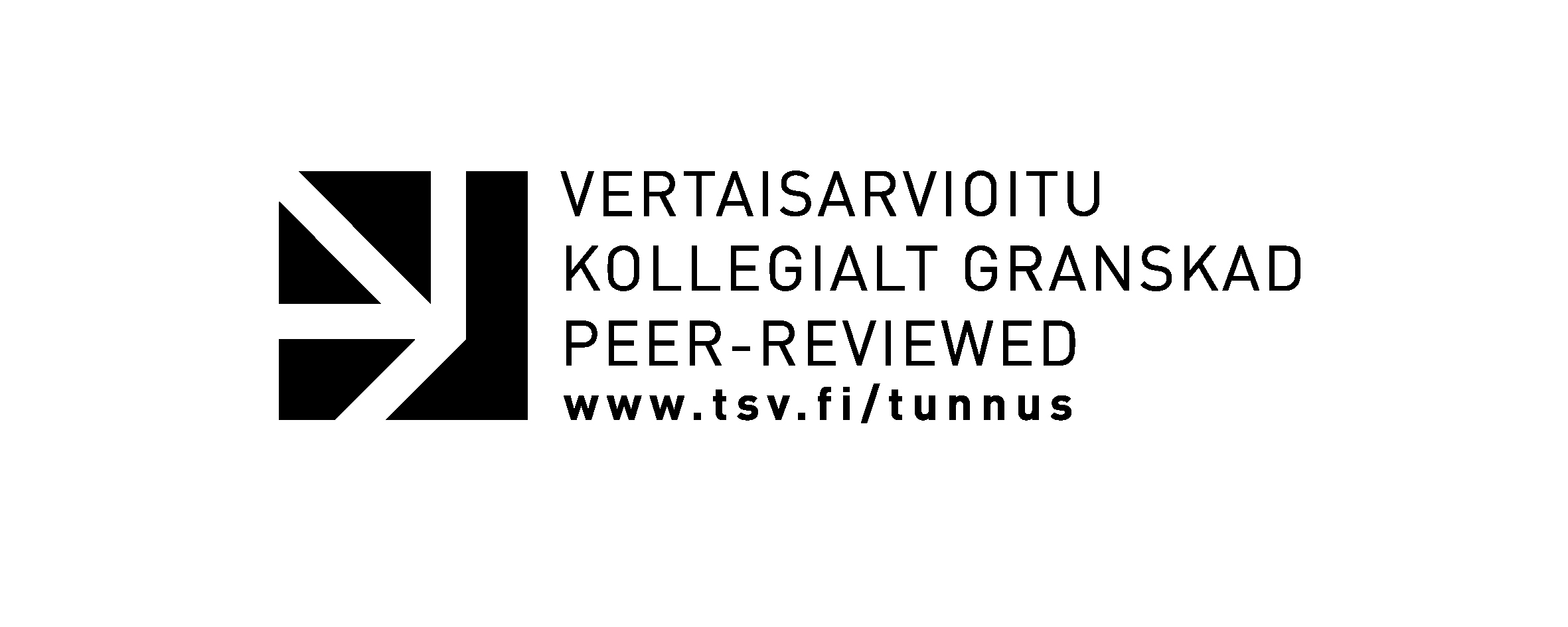Recategorising an Arctic Hero
Entitlement and (Un)Tellability in a Soviet Drama
Avainsanat:
entitlement, tellability, Nenets, indigenous literature, Soviet UnionAbstrakti
This article discusses the claims of entitlement and processes of rendering a story tellable in early twentieth-century Soviet Union through a case study of the play Vavlyo Nyenyangg. The play was co-authored by Ivan Nogo and linguist Grigori Verbov in the context of the creation of a cultural and political intelligentsia, as well as a literature and other modern institutions, for Nenets, an indigenous community living in northern Russia and Western Siberia. In analysing the manuscripts of the play, the alterations made to it and its final, published version, the article argues that Nenets writers collaborated with their Russian assistants by combining two different fields, the vernacular Nenets and the institutionalised socialist models, to create original textual products that both followed the socialist requirements and alluded to the Nenets oral narration. Shared knowledge, called either ‘folklore’ or ‘oral history’, was used as an entitlement for the indigenous writers to tell stories that were rendered tellable in the socialist context through choices in vocabulary and plot structure. These choices produced stories that erased some local contents, structures and interpretations but simultaneously produced new ones.

Viittaaminen
Copyright (c) 2020 Karina Lukin

Tämä työ on lisensoitu Creative Commons Nimeä-EiKaupallinen 4.0 Kansainvälinen Julkinen -lisenssillä.







